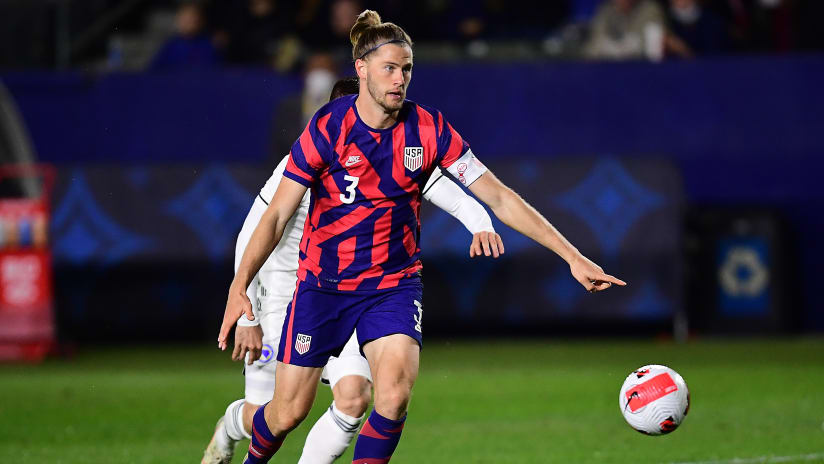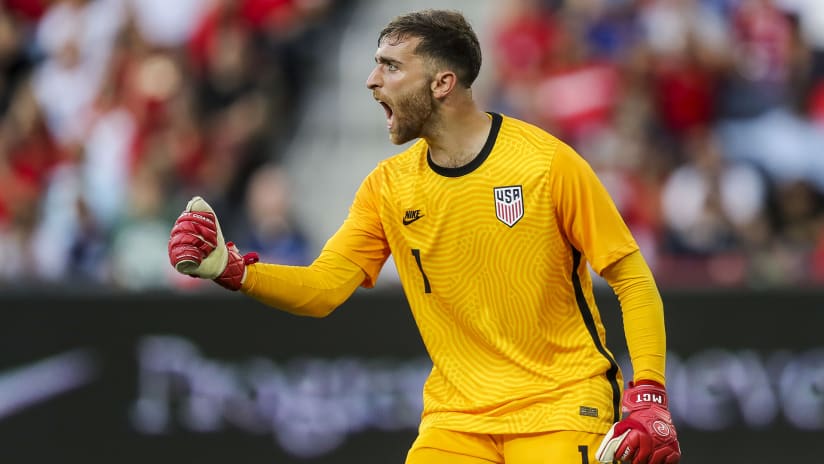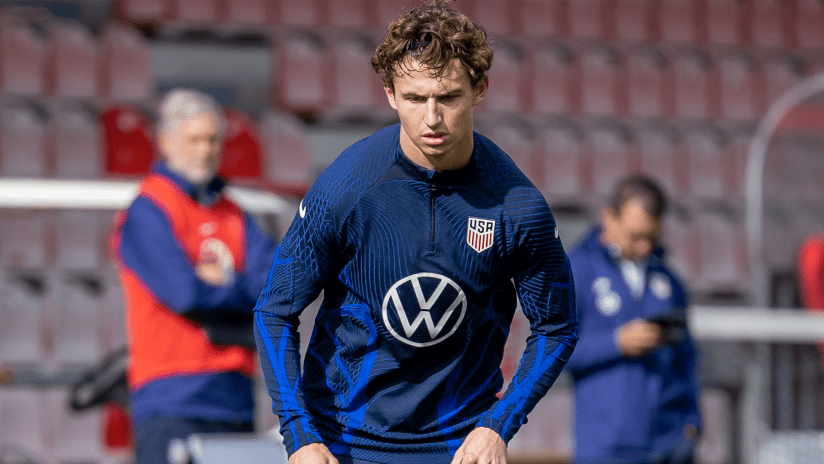They’re only on day two of their September camp in Europe. But the US men’s national team is already facing suboptimal conditions from a defensive standpoint, losing two center backs and a starting left back to injury before the group had even begun to gather in Köln, Germany.
Cameron Carter-Vickers, Chris Richards and Antonee “Jedi” Robinson all look to have a strong to decent chance of starting at the World Cup this autumn, yet are absent this month. Questions continue to hang over the goalkeeping position given the particular situations of Zack Steffen, Matt Turner and Ethan Horvath. And thanks largely to the failures of the 2018 cycle, only one member of the current squad – right back DeAndre Yedlin – has firsthand experience of the tournament.
Veteran leader and Nashville SC center back Walker Zimmerman nevertheless projected confidence as he prepares to anchor the back line in friendlies vs. Japan and Saudi Arabia that mark the USMNT’s final run-through before Qatar, where Wales, England and Iran await.
“None of us have a lot of World Cup experience. People can hit on us for that or think that that is a disadvantage,” the two-time MLS Defender of the Year told reporters in a Tuesday media availability. “But I also know how eager we are to get out there and prove to people what we have in this group.”
According to Zimmerman, coach Gregg Berhalter and his staff have yet to delve much into opposition game-planning for their World Cup adversaries, apparently leaving the focus on the US’s own plans and systems.
At least one of Carter-Vickers and Richards were widely projected to get a shot at the starting left-sided center back spot alongside Zimmerman this month. For now it appears that New York Red Bulls mainstay Aaron Long, who paired with Zimmerman during June’s friendlies vs. Morocco and Uruguay, has the inside track, with injury replacements Mark McKenzie and Erik Palmer-Brown also in the mix.
“In terms of the center backs, Aaron and I have had a decent amount of games together in the past. And it's another opportunity, these two games, to get reps in – and that's in training and in the games,” said Zimmerman.
“So it's already nice working on that today, first day in, and having those reps and training, whether it's build-up or defensive work and shape and just talking through a bunch of different scenarios and situations. Those are the kinds of practices that you're going to need to make sure you're on the same page as a back four.”
Competition might be just as important as chemistry at this point, as Berhalter mulls his final roster decisions. But with a measure of uncertainty at goalkeeper and the coach repeatedly asserting his desire to remain a pressing team, and fielding a high defensive line in conjunction with that, communication and understanding will be vital.
“More than just with your center back partner, but with the entire back four, your goalkeeper, and especially the defensive mids in front of you, it is very important to have that relationship and have that understanding, whether it’s from a tactical point of view or communication point of view,” said Zimmerman.
“I remember earlier on in these past couple of years, talks with both Matt and Zack about when we’re defending crosses. And I think the word was like ‘narrow’ or ‘left’ or whatever, I’m like, well, sometimes we're facing different directions, give us a clear thing. And so we sorted out the language that we wanted to use in a specific situation: ‘to me, to me,’ was ultimately clear. And so it's just like little things like that, that you have to do all all over the pitch to figure out with other players, how to best get along.”
The COVID-19 pandemic and the intensely compressed qualifying cycle it necessitated left the USMNT with fewer chances than usual to play opponents outside of the Concacaf region. As unfamiliar foes and fellow World Cup participants, the Japanese and Saudis offer one last chance for a different perspective before nerve-jangling group-stage clashes with the 19th-, fifth- and 22nd-placed sides in the latest FIFA World Rankings.
“These are two more games to get valuable experience to prepare for the teams and the types of players you might find in the World Cup. So we're controlling what we can control,” said Zimmerman.
“We can't control the opponent. But there's certainly ways that we can improve, whether it's Concacaf or European friendlies. So we're looking at these two games, certainly as building blocks to play against some really good competition and make sure that we're fine-tuning what we need to heading into November.”















